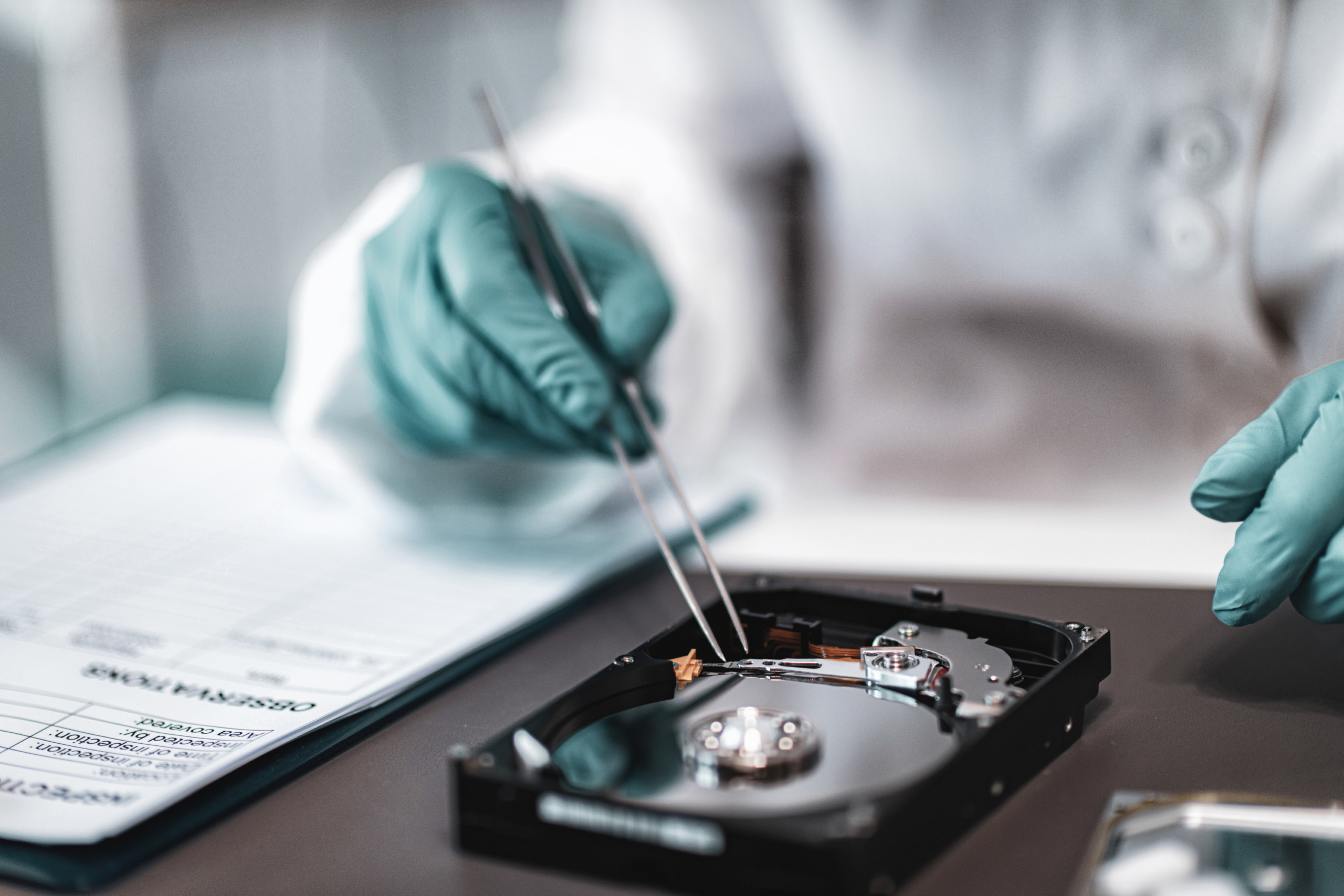From Forensic Science…to Digital Forensics
23/10/2023

Digital Investigation
In today’s fast-changing world, digital devices are everywhere. This means that they’re often present when events of interest occur, which has increased the need for experts in digital forensic science around the globe who can identify, capture and analyse digital device content. Almost every investigation of every type involves some form of digital information.
Digital forensic science isn’t just about police work; it also applies to government agencies and organisations, private companies, and can even be a stepping stone into the world of cybersecurity, offering many different career paths.
A Great Fit?

People who work in digital forensic science come from a range of backgrounds and avenues, such as the military, police, computer science and maths. So, why are forensic science students a great fit for specialising in digital forensic science?
Their thorough training in collecting and analysing evidence, as well as their attention to detail, gives them a strong foundation for navigating the complex world of digital investigations. They have a unique mix of skills and knowledge that enables them to analyse situations and find relevant information. They’re good at solving problems and thinking critically – crucial in a field where experts deal with large amounts of data and often need to uncover hidden or encrypted information.
Highly Adaptable
Moreover, those with a background in forensic science have a solid understanding of laws and ethics. Not only are they already trained in communicating their results to a lay audience, they also grasp the importance of preserving the integrity of and documenting their process. Their background makes them highly adaptable, allowing them to quickly understand computer science and digital forensic science fundamentals. This adaptability is important in a field that’s always changing.
Forensic science does not just concern things like blood and DNA, but now the ability to understand and evaluate digital evidence is of paramount importance.
Funding Support:
If you’re interested in pursuing a Digital Forensics MSc with Cranfield University, the CCL Future of Digital Forensic Science Scholarship may be just what you need to start your journey.
Categories & Tags:
Leave a comment on this post:
You might also like…
Keren Tuv: My Cranfield experience studying Renewable Energy
Hello, my name is Keren, I am from London, UK, and I am studying Renewable Energy MSc. My journey to discovering Cranfield University began when I first decided to return to academia to pursue ...
3D Metal Manufacturing in space: A look into the future
David Rico Sierra, Research Fellow in Additive Manufacturing, was recently involved in an exciting project to manufacture parts using 3D printers in space. Here he reflects on his time working with Airbus in Toulouse… ...
A Legacy of Courage: From India to Britain, Three Generations Find Their Home
My story begins with my grandfather, who plucked up the courage to travel aboard at the age of 22 and start a new life in the UK. I don’t think he would have thought that ...
Cranfield to JLR: mastering mechatronics for a dream career
My name is Jerin Tom, and in 2023 I graduated from Cranfield with an MSc in Automotive Mechatronics. Originally from India, I've always been fascinated by the world of automobiles. Why Cranfield and the ...
Bringing the vision of advanced air mobility closer to reality
Experts at Cranfield University led by Professor Antonios Tsourdos, Head of the Autonomous and Cyber-Physical Systems Centre, are part of the Air Mobility Ecosystem Consortium (AMEC), which aims to demonstrate the commercial and operational ...
Using grey literature in your research: A short guide
As you research and write your thesis, you might come across, or be looking for, ‘grey literature’. This is quite simply material that is either unpublished, or published but not in a commercial form. Types ...







